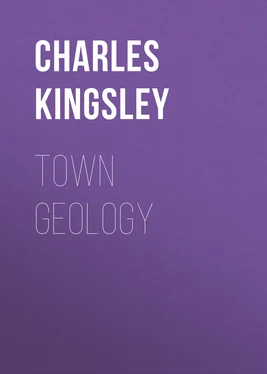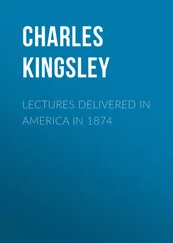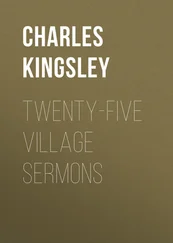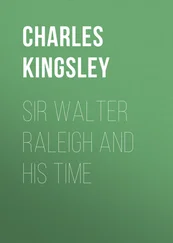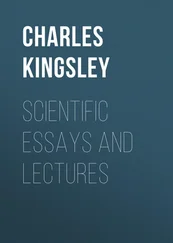Charles Kingsley - Town Geology
Здесь есть возможность читать онлайн «Charles Kingsley - Town Geology» — ознакомительный отрывок электронной книги совершенно бесплатно, а после прочтения отрывка купить полную версию. В некоторых случаях можно слушать аудио, скачать через торрент в формате fb2 и присутствует краткое содержание. Жанр: foreign_edu, geography_book, на английском языке. Описание произведения, (предисловие) а так же отзывы посетителей доступны на портале библиотеки ЛибКат.
- Название:Town Geology
- Автор:
- Жанр:
- Год:неизвестен
- ISBN:нет данных
- Рейтинг книги:5 / 5. Голосов: 1
-
Избранное:Добавить в избранное
- Отзывы:
-
Ваша оценка:
- 100
- 1
- 2
- 3
- 4
- 5
Town Geology: краткое содержание, описание и аннотация
Предлагаем к чтению аннотацию, описание, краткое содержание или предисловие (зависит от того, что написал сам автор книги «Town Geology»). Если вы не нашли необходимую информацию о книге — напишите в комментариях, мы постараемся отыскать её.
Town Geology — читать онлайн ознакомительный отрывок
Ниже представлен текст книги, разбитый по страницам. Система сохранения места последней прочитанной страницы, позволяет с удобством читать онлайн бесплатно книгу «Town Geology», без необходимости каждый раз заново искать на чём Вы остановились. Поставьте закладку, и сможете в любой момент перейти на страницу, на которой закончили чтение.
Интервал:
Закладка:
But as it happens, the mere rind of this earth-fruit which has, countless ages since, dropped, as it were, from the Bosom of God, the Eternal Fount of Life—the mere rind of this earth-fruit, I say, is so beautiful and so complex, that it is well worth our awful and reverent study. It has been well said, indeed, that the history of it, which we call geology, would be a magnificent epic poem, were there only any human interest in it; did it deal with creatures more like ourselves than stones, and bones, and the dead relics of plants and beasts. Whether there be no human interest in geology; whether man did not exist on the earth during ages which have seen enormous geological changes, is becoming more and more an open question.
But meanwhile all must agree that there is matter enough for interest—nay, room enough for the free use of the imagination, in a science which tells of the growth and decay of whole mountain-ranges, continents, oceans, whole tribes and worlds of plants and animals.
And yet it is not so much for the vastness and grandeur of those scenes of the distant past, to which the science of geology introduces us, that I value it as a study, and wish earnestly to awaken you to its beauty and importance. It is because it is the science from which you will learn most easily a sound scientific habit of thought. I say most easily; and for these reasons. The most important facts of geology do not require, to discover them, any knowledge of mathematics or of chemical analysis; they may be studied in every bank, every grot, every quarry, every railway-cutting, by anyone who has eyes and common sense, and who chooses to copy the late illustrious Hugh Miller, who made himself a great geologist out of a poor stonemason. Next, its most important theories are not, or need not be, wrapped up in obscure Latin and Greek terms. They may be expressed in the simplest English, because they are discovered by simple common sense. And thus geology is (or ought to be), in popular parlance, the people’s science—the science by studying which, the man ignorant of Latin, Greek, mathematics, scientific chemistry, can yet become—as far as his brain enables him—a truly scientific man.
But how shall we learn science by mere common sense?
First. Always try to explain the unknown by the known. If you meet something which you have not seen before, then think of the thing most like it which you have seen before; and try if that which you know explains the one will not explain the other also. Sometimes it will; sometimes it will not. But if it will, no one has a right to ask you to try any other explanation.
Suppose, for instance, that you found a dead bird on the top of a cathedral tower, and were asked how you thought it had got there. You would say, “Of course, it died up here.” But if a friend said, “Not so; it dropped from a balloon, or from the clouds;” and told you the prettiest tale of how the bird came to so strange an end, you would answer, “No, no; I must reason from what I know. I know that birds haunt the cathedral tower; I know that birds die; and therefore, let your story be as pretty as it may, my common sense bids me take the simplest explanation, and say—it died here.” In saying that, you would be talking scientifically. You would have made a fair and sufficient induction (as it is called) from the facts about birds’ habits and birds’ deaths which you know.
But suppose that when you took the bird up you found that it was neither a jackdaw, nor a sparrow nor a swallow, as you expected, but a humming-bird. Then you would be adrift again. The fact of it being a humming-bird would be a new fact which you had not taken into account, and for which your old explanation was not sufficient; and you would have to try a new induction—to use your common sense afresh—saying, “I have not to explain merely how a dead bird got here, but how a dead humming-bird.”
And now, if your imaginative friend chimed in triumphantly with: “Do you not see that I was right after all? Do you not see that it fell from the clouds? that it was swept away hither, all the way from South America, by some south-westerly storm, and wearied out at last, dropped here to find rest, as in a sacred-place?” what would you answer? “My friend, that is a beautiful imagination; but I must treat it only as such, as long as I can explain the mystery more simply by facts which I do know. I do not know that humming-birds can be blown across the Atlantic alive. I do know they are actually brought across the Atlantic dead; are stuck in ladies’ hats. I know that ladies visit the cathedral; and odd as the accident is, I prefer to believe, till I get a better explanation, that the humming-bird has simply dropped out of a lady’s hat.” There, again, you would be speaking common sense; and using, too, sound inductive method; trying to explain what you do not know from what you do know already.
Now, I ask of you to employ the same common sense when you read and think of Geology.
It is very necessary to do so. For in past times men have tried to explain the making of the world around them, its oceans, rivers, mountains, and continents, by I know not what of fancied cataclysms and convulsions of nature; explaining the unknown by the still more unknown, till some of their geological theories were no more rational, because no more founded on known facts, than that of the New Zealand Maories, who hold that some god, when fishing, fished up their islands out of the bottom of the ocean. But a sounder and wiser school of geologists now reigns; the father of whom, in England at least, is the venerable Sir Charles Lyell. He was almost the first of Englishmen who taught us to see—what common sense tells us—that the laws which we see at work around us now have been most probably at work since the creation of the world; and that whatever changes may seem to have taken place in past ages, and in ancient rocks, should be explained, if possible, by the changes which are taking place now in the most recent deposits—in the soil of the field.
And in the last forty years—since that great and sound idea has become rooted in the minds of students, and especially of English students, geology has thriven and developed, perhaps more than any other science; and has led men on to discoveries far more really astonishing and awful than all fancied convulsions and cataclysms.
I have planned this series of papers, therefore, on Sir Charles Lyell’s method. I have begun by trying to teach a little about the part of the earth’s crust which lies nearest us, which we see most often; namely, the soil; intending, if my readers do me the honour to read the papers which follow, to lead them downward, as it were, into the earth; deeper and deeper in each paper, to rocks and minerals which are probably less known to them than the soil in the fields. Thus you will find I shall lead you, or try to lead you on, throughout the series, from the known to the unknown, and show you how to explain the latter by the former. Sir Charles Lyell has, I see, in the new edition of his “Student’s Elements of Geology,” begun his book with the uppermost, that is, newest, strata, or layers; and has gone regularly downwards in the course of the book to the lowest or earliest strata; and I shall follow his plan.
I must ask you meanwhile to remember one law or rule, which seems to me founded on common sense; namely, that the uppermost strata are really almost always the newest; that when two or more layers, whether of rock or earth—or indeed two stones in the street, or two sheets on a bed, or two books on a table—any two or more lifeless things, in fact, lie one on the other, then the lower one was most probably put there first, and the upper one laid down on the lower. Does that seem to you a truism? Do I seem almost impertinent in asking you to remember it? So much the better. I shall be saved unnecessary trouble hereafter.
Читать дальшеИнтервал:
Закладка:
Похожие книги на «Town Geology»
Представляем Вашему вниманию похожие книги на «Town Geology» списком для выбора. Мы отобрали схожую по названию и смыслу литературу в надежде предоставить читателям больше вариантов отыскать новые, интересные, ещё непрочитанные произведения.
Обсуждение, отзывы о книге «Town Geology» и просто собственные мнения читателей. Оставьте ваши комментарии, напишите, что Вы думаете о произведении, его смысле или главных героях. Укажите что конкретно понравилось, а что нет, и почему Вы так считаете.
